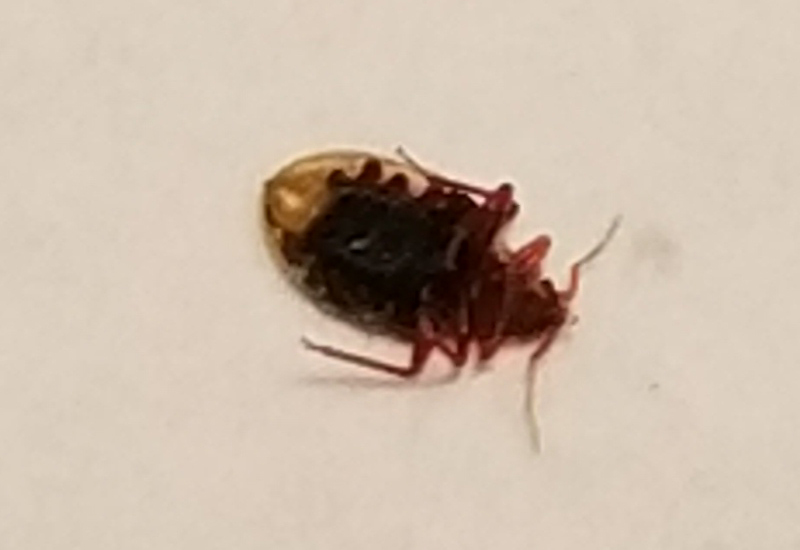Bed bugs have experienced a significant resurgence globally. Their presence is now common in various habitats, ranging from homes to hotels and even public transportation.
These small, brownish insects have become a concern in many urban environments.
Their primary habitat includes places where people rest or sleep, making households a prime target.
In this article, we will look at what these bugs eat and why they are considered such an important pest.

What Do Bed Bugs Eat?: Blood
Bed bugs primarily feed on blood. This is not just a preference; it’s a necessity for their survival and reproduction.
Blood provides essential nutrients that bed bugs require for growth and reproduction.
Without regular blood meals, bed bugs cannot mature or reproduce effectively.
What Do Bed Bugs Eat Other Than Blood?
There’s a common misconception that bed bugs might consume other substances. However, the truth is straightforward: bed bugs feed solely on blood.
While the common bed bug, Cimex lectularius, prefers feeding on humans, it can also feed on other warm-blooded animals.
This includes pets commonly found in households, such as dogs and cats.
Bed Bugs in Domestic Settings: What They Eat in the House
In domestic settings, bed bugs primarily target humans for their blood meals.
This behavior is observed in homes, apartments, and even hotels where human hosts are readily available.
However, it’s worth noting that these pests are not exclusive to humans in such environments.
If given the opportunity, they will also feed on household pets, including dogs and cats.

Bed Bugs in the Wild: Natural Feeding Habits
In the wild, bed bugs exhibit slightly different feeding habits. While they still prioritize blood as their primary food source, the hosts can vary.
Certain species of bed bugs are parasites of wild animals, such as birds and bats.
In the absence of their preferred wild hosts, these bed bugs might bite humans, especially if they find their way into domestic settings.
The Science Behind Their Blood-Feeding Behavior
The nutritional value of blood is the primary reason bed bugs consume it. Blood provides them with the essential nutrients required for their growth, molting, and reproduction.
Bed bugs have developed specialized mouthparts that allow them to pierce the skin of their hosts and withdraw blood.
They locate their hosts primarily through the carbon dioxide produced and body heat, making their feeding behavior highly efficient.
The Feeding Process: How Do Bed Bugs Eat You Alive?
Bed bugs employ a unique feeding mechanism. They pierce the skin with an elongated beak, which they use to withdraw blood from their host.
The feeding process is typically painless, which is why many individuals don’t realize they’re being bitten.
Engorgement, or the process of filling with blood, takes about three to ten minutes for a bed bug.
After feeding, they retreat to a secluded location to digest their meal.

Debunking Myths: Addressing Common Misconceptions
There are numerous myths surrounding bed bugs and their dietary habits.
One prevalent misconception is that they consume food scraps or other household items.
However, this is far from the truth. Bed bugs feed exclusively on blood.
Blood is the main food for bed bugs, and they have evolved over time to become efficient blood feeders.
While they might be found in various locations within a household, their presence is not indicative of the cleanliness or hygiene of the dwelling.
Eradicating Bed Bugs: What Kills Them Permanently?
Eradicating bed bugs can be a challenging task due to their resilience and ability to hide in various places.
Professional extermination is often recommended, especially in severe infestations.
There are several methods to exterminate bed bugs, including heat treatments, chemical pesticides, and manual removal.
However, it’s essential to note that a combination of methods is often the most effective approach.
Regular inspections and early detection play a crucial role in ensuring successful eradication.

Can You Starve Out Bed Bugs?
One of the remarkable traits of bed bugs is their ability to survive without feeding for extended periods.
In certain conditions, they can persist for months without a blood meal.
The idea of starving bed bugs as a control method is not practical.
Since they can survive without feeding for a month, leaving homes unoccupied in hopes of starving them out is ineffective.
In temperature-controlled buildings, a typical duration without feeding ranges from 1 to 4 months.
If infested dwellings are left vacant, bed bugs may disperse to nearby units or reduce their activity until the unit is reoccupied.
Frequently Asked Questions
Do bed bugs eat anything other than blood?
What is the main food for bed bugs?
What kills bed bugs permanently?
Can you starve out bed bugs?
Bed bugs can survive for months without feeding. However, attempting to starve them by leaving homes unoccupied is ineffective. They may disperse to nearby units or reduce activity until reoccupied.
Conclusion
Bed bugs, with their primary diet of blood, have become a significant concern in various urban environments.
Their resilience, ability to hide, and efficient feeding behavior make them a challenging pest to control.
Understanding their habits, lifecycle, and feeding patterns is crucial for effective eradication.
While there are several myths surrounding these pests, it’s essential to rely on factual information and professional guidance when dealing with infestations.
Early detection and a combination of control methods are key to managing and eliminating bed bug populations.
The post What Do Bed Bugs Eat? Debunking Myths About Their Food Preferences appeared first on What's That Bug?.
No comments:
Post a Comment